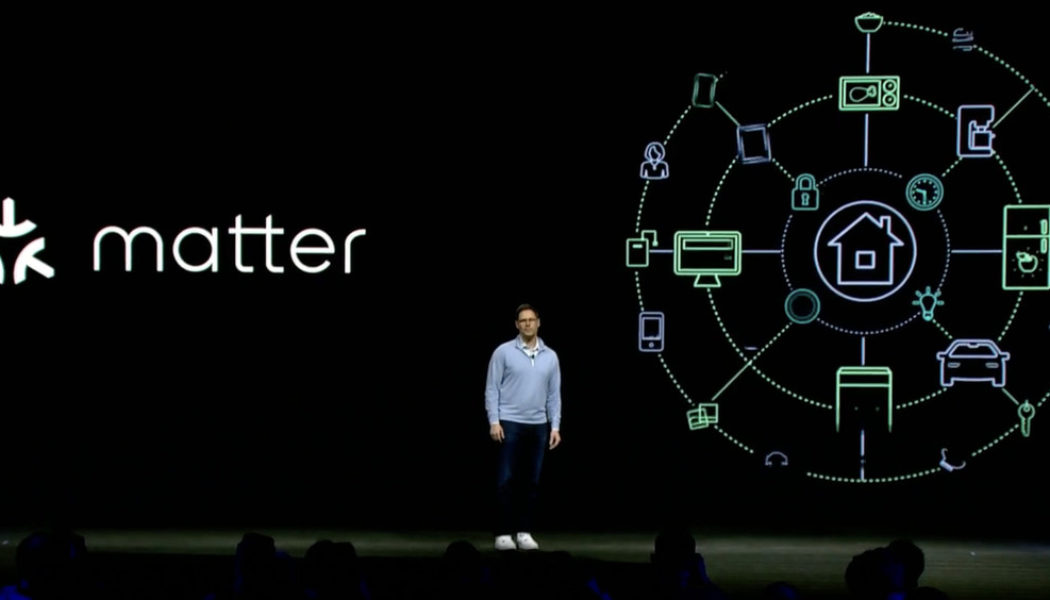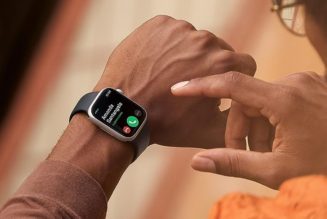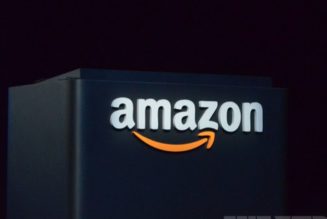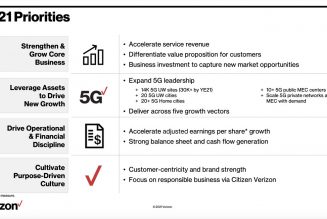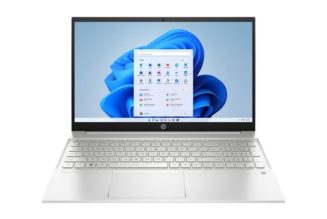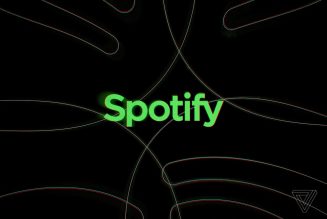The smart home is about to change. Soon, you won’t have to choose a smart light bulb or door lock just because it works with your smart speaker. Instead, you’ll be able to buy a smart device, bring it home, and it will work with any voice assistant or app you choose. At least, that’s the promise behind Matter, a new standard created by Samsung, Google, Apple, and Amazon. Most importantly, you won’t be locked into the platform you chose. If you decide you want to switch to SmartThings from Google Home, or go with Amazon Alexa over Apple HomeKit, any Matter-enabled devices can come with you.
This shift in the smart home means the major platforms that help us run our connected devices are changing, too. The Verge sat down with Mark Benson, the newly appointed Head of SmartThings US, Samsung’s home automation arm, to learn about its plans to adopt Matter.
:no_upscale()/cdn.vox-cdn.com/uploads/chorus_asset/file/23435224/Matter_Samsung.png)
Founded 10 years ago on Kickstarter, SmartThings is one of the only standalone consumer smart home hubs from the early days of the DIY smart home boom that’s still alive and kicking. It built its business on its namesake hub’s ability to connect devices from different manufacturers, allowing you to control them all with one app.
While there are more “hubs” that do that today (including Amazon Alexa and Google Home), the SmartThings hub is one of the few consumer-level devices with multiple radios in it, including Wi-Fi, Zigbee, and Z-Wave, allowing it to control a much wider range of smart home devices. It also works with cloud-to-cloud software services and is one of the most compatible smart home platforms. There’s voice assistant support, too, for both Amazon Alexa and Google Assistant as well as Samsung’s Bixby.
Acquired by Samsung in 2014, SmartThings has become the electronics giant’s primary platform for connected devices. The app is preinstalled on all Samsung phones, and if you buy any connected Samsung appliance — such as a refrigerator, TV, or washing machine — you’ll need to download the SmartThings app to use any smart features. The app works on both iOS and Android phones and includes one of the more powerful automation platforms.
Since the acquisition, Samsung has moved away from manufacturing any SmartThings hardware, offloading both the standalone hub and many of the sensors to device maker Aeotec. The company has said it’s focusing all efforts on the SmartThings app and supporting Samsung’s connected products through software.
In 2021, it launched Cooking, Air Care, Clothing Care, and Pet Care sections of the SmartThings app to help users of Samsung products get the most out of their connected appliances, and a Smart Energy and Home Care section for monitoring energy usage and maintenance needs of Samsung appliances.
:no_upscale()/cdn.vox-cdn.com/uploads/chorus_asset/file/23435408/01_smartthings_ui_update_1.jpg)
This interview has been lightly edited and condensed for clarity.
Where do you want to take the SmartThings platform now that you’re leading it?
Mark Benson: A lot has changed in the industry since SmartThings launched. Architecturally, the platform has had to also evolve. We’ve been working on setting the platform up for scale and flexibility in the future.
There’s a lot of exciting things going on in the smart home space. Consumers have never been more willing to add smart devices to their homes. With the pandemic, people are rediscovering and reimagining what their home could be like and how they can make it better, which is translating to an excitement about smart home stuff.
SmartThings is really in the center of that movement where we’ve been since 2012. And I think we have a unique opportunity to bring our partners together to commit to the new industry standard, Matter. Finally, the industry has recognized [that connectivity] has been a barrier to adoption.
I do think that, in 10 years, we’re going to look back at this year as an industry inflection point — a fundamental change in the way companies work together to deliver things that actually work together, and not just in separate siloed ecosystems.
There have been two parts to SmartThings for a while: Samsung SmartThings and the original SmartThings. Samsung no longer makes any SmartThings hardware and has said that future hubs will be software-based. Many users are worried about that shift. Can you speak to the future roadmap and how you’re moving the original SmartThings into the new SmartThings?
It’s an evolution. And it’s been happening now for a while. We’re really trying to bridge those worlds together. Our history has been the hub and the community with all of the great innovations that they’ve brought. But we’re also seeing a massive explosion in the adoption of SmartThings through the Samsung appliances and TVs.
So, you have a chasm between the early adopters and innovators, who really know how to run a smart home, and the everyday user who has some smart, connected devices but doesn’t have a handle on the full scope of a connected home.
The future growth is really in this [user], but it doesn’t mean that we want to leave that early group behind. We want to bridge those two and find ways that the community can innovate to make the whole SmartThings platform better for everybody.
What is the future for the SmartThings hub with Matter on the horizon?
The standalone SmartThings V3 Hub and the Aeotec SmartThings Hub will be updated to support Matter when it launches in the fall. SmartThings is getting integrated more deeply across the Samsung portfolio, with SmartThings Hub software built into select 2022 Samsung Smart TVs, Smart Monitors, and Family Hub refrigerators. These devices will also allow users to connect a wide variety of existing smart home devices, as they will be updated to get Matter as a controller support, as the new standard becomes available.
We also plan to support Matter as a controller on our SmartThings Hub V2. This will enable our existing users to connect and control Matter devices.
:no_upscale()/cdn.vox-cdn.com/uploads/chorus_asset/file/23435367/4_Samsung_Family_Hub_MLP_Desktop_Asset.jpg)
Will the built-in hubs have any low-power wireless radios, as the standalone hubs do? What about Thread?
Low power wireless protocols are a crucial part of the Matter standard and will definitely come to the Samsung SmartThings products with built-in hub functionality. More details to come later on actual implementation of Thread technology, but Thread’s really important to us. Communication with Zigbee devices will be possible through the SmartThings Dongle, allowing connectivity to a wide range of smart home devices.
You say Samsung is integrating Matter as a controller — does this mean that Samsung’s connected devices (washing machines, robot vacuums, TVs, etc.) will not be exposed to other Matter controllers (such as Amazon Alexa or Apple HomeKit)?
Indeed. This year, we will focus our efforts on bringing Matter as a controller to multiple surfaces across the Samsung portfolio. This means most 2022 Samsung Smart TVs, Smart Monitors, and Family Hub refrigerators. SmartThings Hubs will not act as a Matter bridge, so non-Matter devices will not be bridged or exposed to other Matter controllers. That said, Matter-enabled SmartThings hubs will continue to support existing devices and protocols (e.g. Zigbee, Z-Wave) to provide SmartThings customers with flexible connectivity options.
Where do you see Matter taking SmartThings?
The competitive landscape is changing. It’s inevitable that we’ve gotten to this point. In the earlier days of the smart home, it was about “How can I get a device connected?” and “What platform is the most flexible in terms of enabling the most different kinds of varied protocols and devices?” It was a fragmented world, and we got everything to work together.
Matter is helping to simplify the way devices get connected. Now, how it’s connected isn’t the differentiator anymore. It could take some time for Matter to develop and be adopted. It’s not going to be all at once, but it is definitely the future.
With connectivity becoming more standardized, where SmartThings competes in the future will be different. The user experience is the competitive space that will differentiate platforms and companies — things around use cases in the home, cooking, taking care of your pets, managing energy usage, setting the lighting just right, and locking the doors at night. Having those things just work and be simple and easy to understand so that users can control their homes and manage their homes well is why we’re excited about Matter.
At the same time, it does force an evolution, a change, in terms of where the competitive areas are and where the collaborative areas are.
:no_upscale()/cdn.vox-cdn.com/uploads/chorus_asset/file/23435377/SmartThings_Home_Life_main3.jpg)
Why is Samsung SmartThings going to be a leader here? What is going to make the user want to go with SmartThings rather than another platform to run their smart homes once Matter arrives?
The user experience, hopefully, is great enough that it is a differentiator. It’s going to be very competitive because there are a number of companies that are all working to have that same goal of being the great user experience that the customers can go to manage their Matter devices. But one of the big differentiators that we have is the Samsung portfolio of devices. And that’s something no one else has.
The other thing is that SmartThings has an incredible Routines engine for creating advanced automations. Other companies will continue making investments and improvements there because that’s really critical to do that well. But that’s already something that SmartThings has the advantage in. And it’s something that we’re continuing to invest in.
The interoperability and being able to get devices connected is standardizing. But connectivity isn’t where the competition will happen. It’s in the experience of using those things and how they work with the features that you can access on those devices. That is something that will continue to be a differentiating point for SmartThings and for Samsung.
